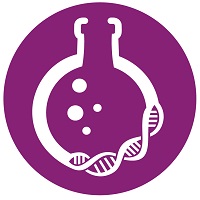Back
Bioanalytics – Chemical
Session: Rapid Fire: Beyond Legacy Therapeutics - Navigating the Path Less Traveled (CE)
Quantitation of Dystrophin and Microdystrophin by A Hybrid LBA/LC-MS Assay
Monday, October 17, 2022
3:00 PM – 3:15 PM ET
Location: 253 A
.jpg)
Hua Wang, PhD
Sr Scientist
REGENXBIO, Inc.
Rockville, Maryland
Rapid Fire Speaker(s)
REGENXBIO’s RGX-202 AAV gene therapy program is designed to treat Duchenne Muscular Dystrophy (DMD) by delivering an optimized human microdystrophin transgene to DMD patients. A hybrid LBA/LC-MS/MS method was developed to quantify this optimized microdystrophin and full-length dystrophin in skeletal muscle tissues from mouse, monkey and human. Tissues were homogenized, proteolyzed by trypsin and followed by immunocapturing two peptides: one microdystrophin specific and another conserved in microdystrophin and dystrophin. A recombinant microdystrophin protein and two anti-peptide monoclonal antibodies were developed for the assay.
The dynamic range was 12.5 – 2500 fmol per mg of lysate protein with precision and accuracy within 20% for both peptides. Full-length dystrophin levels in mouse, NHP and human were measured from 1000 to 3000 fmol/mg across various muscle types. The LLOQ of microdystrophin was approximately 0.5% of mean dystrophin concentration in normal controls. The assay will be validated to support the first-in-human clinical study.
The dynamic range was 12.5 – 2500 fmol per mg of lysate protein with precision and accuracy within 20% for both peptides. Full-length dystrophin levels in mouse, NHP and human were measured from 1000 to 3000 fmol/mg across various muscle types. The LLOQ of microdystrophin was approximately 0.5% of mean dystrophin concentration in normal controls. The assay will be validated to support the first-in-human clinical study.
Learning Objectives:
- Upon completion, participant will be able to learn the progress of a novel AAV gene therapy approach for DMD disease.
- Upon completion, participant will be able to understand the considerations behind choosing different approaches for tissue protein quantitation by various methods (LCMS, western blot, IHC and capillary WB).
- Upon completion, participant will be able to understand development of an LCMS assay targeting analyte including a transgene product from AAV gene therapy and an endogenous protein.


